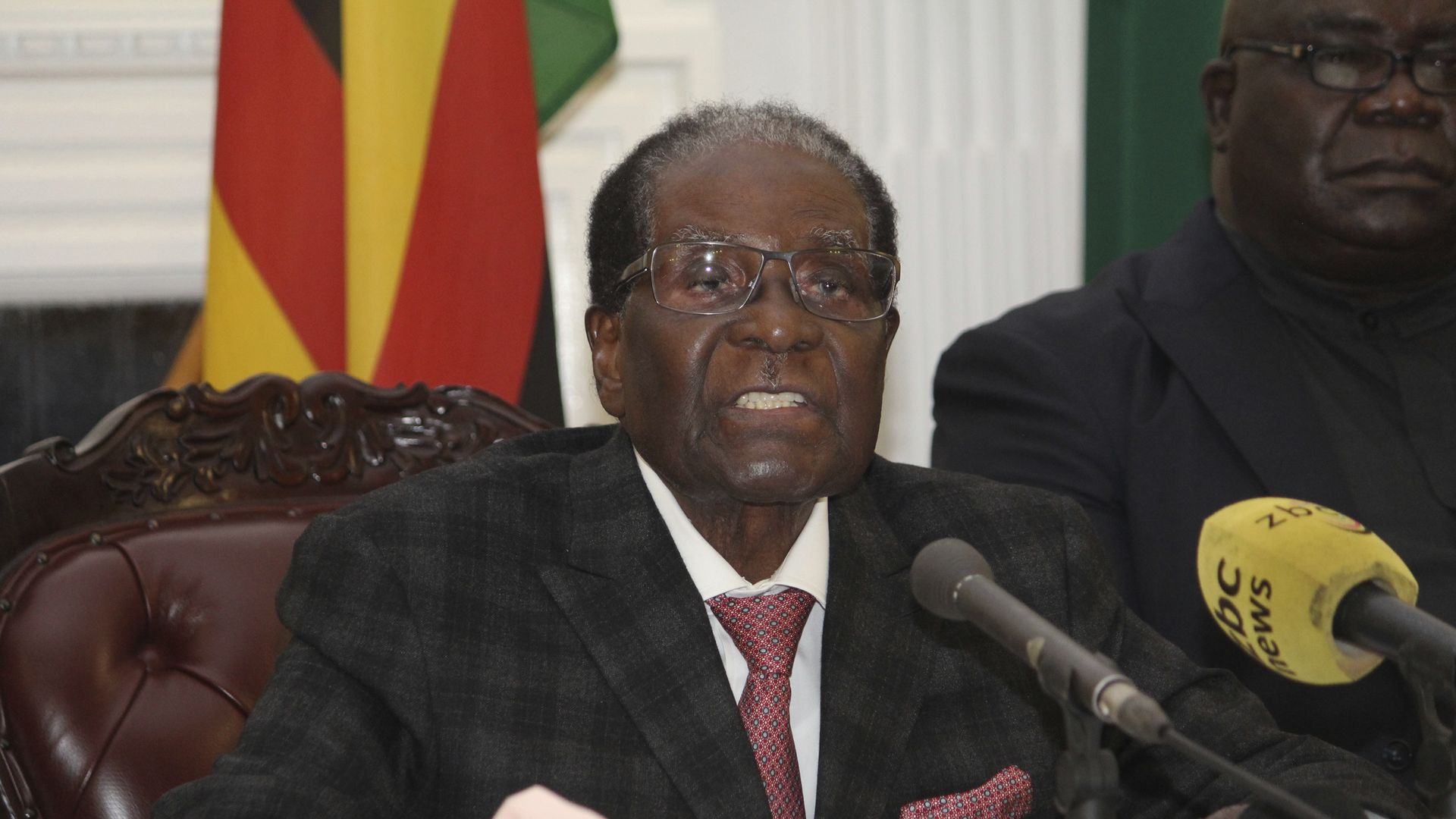Dec 13, 2017
Expert VoicesZANU-PF tries to blame Mugabe's wife for his misgovernance
Add Axios as your preferred source to
see more of our stories on Google.

Zimbabwean President Robert Mugabe at State House in Harare, Nov. 19, 2017. Photo: AP
Add Axios as your preferred source to
see more of our stories on Google.

Zimbabwean President Robert Mugabe at State House in Harare, Nov. 19, 2017. Photo: AP